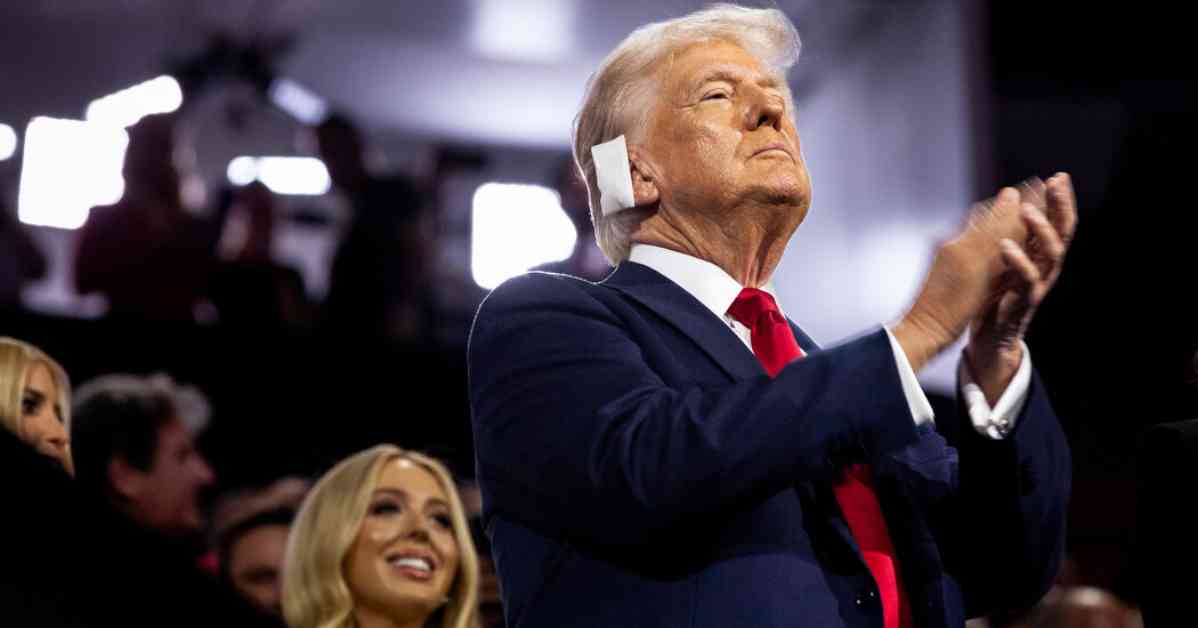**The Growing Influence of Trump: What Lies Ahead**
As the nation grapples with the aftermath of Donald Trump’s first term in office, many are beginning to speculate on what the future holds if he is elected to a second term. The concerns surrounding the potential for further damage and division under a continued Trump presidency are echoed by experts and scholars across the political spectrum.
*The Rise of Authoritarianism*
Historian Sean Wilentz of Princeton University warns that Trump and his supporters have made it abundantly clear that they will not accept defeat in the upcoming election. This refusal to acknowledge electoral outcomes poses a significant threat to the democratic process and highlights the growing authoritarian tendencies within the Republican Party. The normalization of Trump’s divisive rhetoric and disregard for democratic norms has created a dangerous precedent that could have lasting implications for the country.
*The Erosion of Norms and Institutional Guardrails*
Law professor Laurence Tribe of Harvard University emphasizes the erosion of norms and institutional guardrails that have historically served as checks on executive power. Trump’s disregard for established norms of governance, such as accepting electoral defeat and respecting the rule of law, has paved the way for further abuses of power. The capture of the Supreme Court and federal judiciary by Trump loyalists has only exacerbated concerns about the potential for unchecked authoritarianism in a second term.
*The Threat of Politically Motivated Prosecutions*
Political scientist Charles Stewart of M.I.T. raises concerns about the potential for politically motivated prosecutions under a second Trump administration. The weaponization of the justice system to target political opponents could have chilling effects on dissent and further polarize an already divided society. The implications of such actions extend beyond individual cases to the broader erosion of democratic principles and the rule of law.
*The Republican Party’s Alignment with Trump*
Historian Julian Zelizer of Princeton University highlights the full-throated support that Trump continues to receive from the Republican Party, despite his numerous controversies and legal troubles. The party’s willingness to stand behind Trump in the face of impeachment, insurrection, and criminal convictions underscores the extent to which the GOP has embraced his brand of disruptive politics. The normalization of Trump’s behavior within the party sets a dangerous precedent for future leaders and undermines the traditional values of the Republican Party.
*The Global Implications of a Second Trump Administration*
Historian Timothy Snyder of Yale University draws parallels between Trump’s authoritarian tendencies and the regimes of Stalin and Hitler. The normalization of dictatorial behavior and the erosion of democratic norms could have far-reaching consequences on the global stage. The weakening of democratic institutions in the United States could embolden authoritarian regimes abroad and destabilize international relations. The stakes of a second Trump administration extend beyond domestic politics to the very fabric of global democracy.
*Conclusion*
As the 2024 election looms on the horizon, the future of Trump’s influence remains uncertain. The prospect of a second term for the former president raises serious concerns about the erosion of democratic norms, the politicization of the justice system, and the consolidation of authoritarian power. The need for vigilance and civic engagement has never been more pressing as the nation grapples with the implications of a continued Trump presidency. Only time will tell what lies ahead for the country and the world under the shadow of Trump’s influence.














